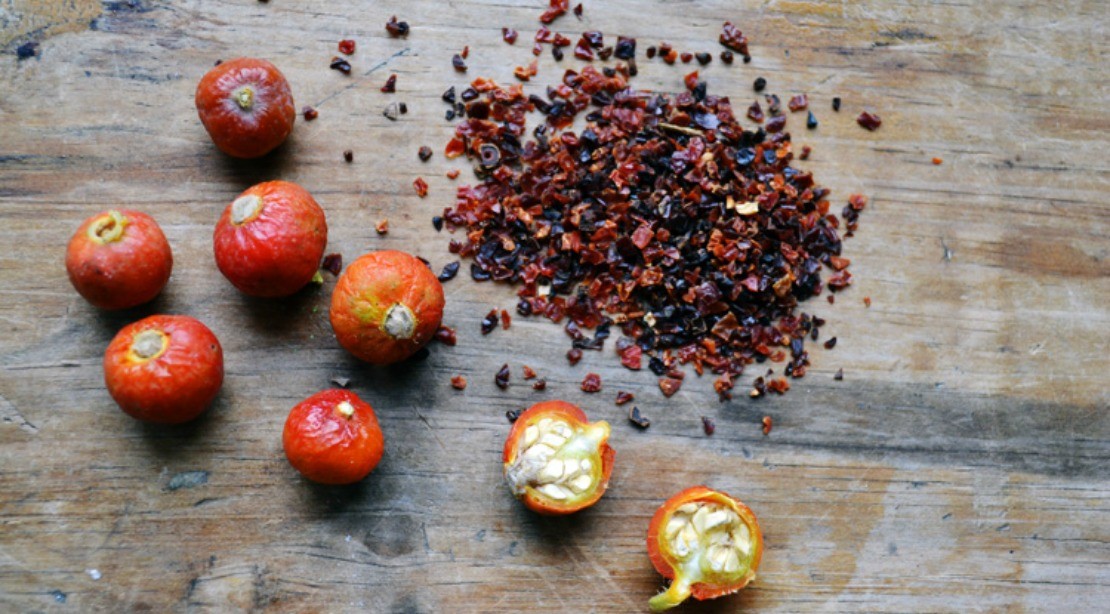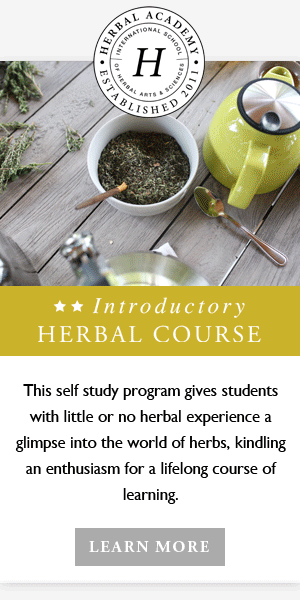
How Much Do You Know About Herbal Preparations?
Making herbal medicine is easy! While it may seem overwhelming at first, a little coaching from a book, friend, or online resource is all you need to get started. Medicine making is not relegated to the domain of the scientist in a white lab coat! The folk method of herbal medicine making is particularly accessible, as it involves making “simples” (one-plant remedies) or measuring in “parts” (one part this, one part that) and using general rules and intuition to guide medicine making. Once you know these general rules of making a tincture, extract, salve, or infusion, you can apply that knowledge to any number of plants and create your own herbal medicine chest at a fraction of the expense of store bought remedies. You may also discover that harvesting your own herbs and making your own remedies provides its own particular medicine and becomes an invaluable part of your healing journey.
If you’re interested in learning how to make herbal remedies at home, rooting and sprouting herbalists can join us in the Online Introductory Herbal Course, while budding and blossoming herbalists can dive into the Online Intermediate Herbal Course. The Introductory Course includes an entire unit on the types of herbal preparations, while both courses include numerous recipes for various herbal remedies. Discover the empowerment that comes with crafting your own herbal medicine!
Take the Herbal Preparations Quiz!
How much do you know about the various preparations of herbal remedies and the factors that affect their quality? Take this quiz to test your knowledge!

An herbal decoction is a water extraction used to make a medicinal tea from which part of the plant:

Herbal infusions are generally different from beverage teas in each of the following ways except:

The effectiveness of the prepared herbal remedy is dependent upon the quality of the herbs used in its preparation. What factors most affect the quality of the herb?

How do you determine whether to use fresh or dried herbs in herbal preparations?

Isolating active plant constituents in a laboratory always creates a safer, more effective herbal product than using the whole plant.

All but which of the following are used as solvents to make a quality medicinal tincture/extract?

Which of the following terminology is not related to the process of preparing plant material and making medicine?

Which of the following preparations can all be used for topical (external) application:
Let’s Review the Quiz!
Question:
An herbal decoction is a water extraction used to make a medicinal tea from which part of the plant:
Correct Answer: Roots
Additional Information: A decoction is a tea made by slowly simmering tough roots and bark that require more time and work to extract medicinal constituents. A decoction takes approximately 20-45 minutes, depending on the type of plant.
Question:
Herbal infusions are generally different from beverage teas in each of the following ways except:
Correct Answer: The temperature of the water
Additional Information: An herbal infusion is a tea made by steeping approximately 1 ounce of dried herb per quart of water in boiling water for several hours. As a nourishing or medicinal preparation, herbal infusions are typically consumed throughout the day. Learn how to make hot and cold herbal infusions here.
Question:
The effectiveness of the prepared herbal remedy is dependent upon the quality of the herbs used in its preparation. What factors most affect the quality of the herb?
Correct Answer: Soil quality, cultivation practices, and freshness
Additional Information: The quality of soil and cultivation practices are paramount in producing healthy plants. Rich, healthy soil and sustainable, mindful cultivation practices will produce nutrient dense plants. If picked at their peak and preserved appropriately, they will be of high quality and produce exceptional medicine.
Question:
How do you determine whether to use fresh or dried herbs in herbal preparations?
Correct Answer: All of the above
Additional Information: Each of these factors influence the choice between fresh or dried herbs. For example, the red oil in St. John’s wort flowers is best extracted from fresh flowers. Glycerin extracts constituents from fresh material much more effectively than dried, while alcohol is effective for both. In general, using fresh herbs is ideal but not always preferred (or feasible). Some plants can be used fresh or dried with similar outcomes. Some need to be dried, and in a very few cases (Cascara sagrada, orris root), the fresh root is toxic so must be dried. Just remember that dried herbs lack the moisture content of fresh plants, and are considered more concentrated than fresh herbs, so adjust recipes accordingly.
Question:
Isolating active plant constituents in a laboratory always creates a safer, more effective herbal product than using the whole plant.
Correct Answer: False
Additional Information: A pharmaceutical made from a single isolated active plant constituent may be effective, but may also have unwanted side effects. Herbs contain multiple constituents that work in concert on the body, and not all of these constituents are known. By only using one constituent, the full benefit of the herb may not be received, or worse, the isolated constituent may be harsh or unsafe by itself.
Question:
All but which of the following are used as solvents to make a quality medicinal tincture/extract?
Correct Answer: Glycol
Additional Information: Alcohol, vinegar, and glycerin are used to make tinctures/extracts (technically, a “tincture” is an alcohol-based extract). Vinegar and glycerin can be used as the solvent when alcohol is not preferred. The choice of solvent will depend on what plant constituent you seek to capture, which in turn depends on what condition is being treated. Learn how to make a tincture and a glycerite here and here.
Question:
Which of the following terminology is not related to the process of preparing plant material and making medicine?
Correct Answer: Acidulate
Additional Information: Garble (verb \ˈgär-bəl\): To separate the usable part of the plant (e.g. flowers, leaves) from the unusable parts (e.g. stem)
Menstruum (noun \ˈmen(t)-strü-əm): Liquid solvent such as alcohol, vinegar, glycerin, or water used to extract the medicinal constituents from plant material
Marc (noun \ˈmärk\): Waste plant material that remains after the liquid extract is removed during preparation of a plant extraction
Question:
Which of the following preparations can all be used for topical (external) application:
Correct Answer: Poultice, salve, tincture
Additional Information: Topical preparations meant for external application include liniments (rubbing alcohol extracts), infused oils, compresses (cloth soaked in tea), creams, poultices (plants mashed up with water), salves, tinctures, and bath teas, among others. Learn how to make a salve here.
Score your quiz!
0 to 1 correct answers? You are a Rooting Herbalist, your path is just beginning, welcome!
You are just starting out and have taken only a couple steps into your herbal journey. You have used a few herbs like basil and cilantro, adding these culinary herbs to your pasta sauce or salsa. Who knew they can also be used medicinally! Herbalism is a new word in you dictionary, but you are interested in learning more about it and what it means!
1 to 3 correct answers? You are a Sprouting Herbalist!
You are curious about herbs and how to use them for your health, and you often wonder about the plants and weeds that grow in your backyard, but you are unsure how to use them for yourself and family. While you may have tried making your own herbal teas and homemade lotions, you don’t fully understand dosage and formulation. Herbalism might be a new word in your dictionary, but you are definitely eager to jump in and discover this “back to the roots” way of life!
4 to 7 correct answers? You are a Budding Herbalist!
You are truly passionate about herbs and eager to learn more! You have a good understanding of herbs and how to use them for yourself and others. You’ve been studying herbs on your own for some time and may have taken some classes or courses. Your passion rubs off on your family and friends. Herbalism is not just a fad for you, it’s a lifestyle! And your journey is far from over… there’s always more to learn!
8 correct answers? You are a Blossoming Herbalist!
You have a good grasp of herbs and how to use them as medicine. Your library is always expanding with new reading materials and you have been studying herbs since you can remember. Many of your friends and family come to you with questions about their health and wellness, and you are proud to be able to help them. Your passion for herbalism is ever growing andl like so many others with years of experience and education, you are mature enough to recognize that herbalism is a lifelong pursuit… so let the adventure continue!
If you’re interested in learning more about herbalism, rooting and sprouting herbalists can join us in the Online Introductory Herbal Course, while budding and blossoming herbalists can dive into the Online Intermediate Herbal Course.







